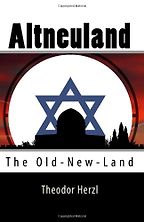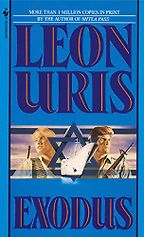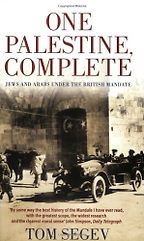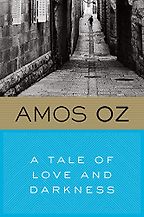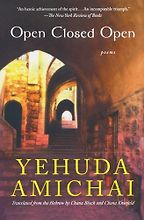Your first book, The Old-New-Land by Theodor Herzl, is said to have changed the face of the Middle East – how so?
This is probably not Herzl’s most important piece of writing. It’s not a political thing or a polemic. But, it’s this idea that he imagined how wonderful it would be when the Jews re-established themselves in their ancient homeland. It was written shortly before his death in 1904.
The reason I chose this and all the books I selected is that when I was writing my book, Emancipation, what I quickly came to see is that every stage of the integration of this ghettoised community into European society has produced push-back from a minority of Jew-haters on the other side. The vast middle didn’t care one way or the other.
Before Herzl there was Moses Hess who had also theorised about Zionism. He was one of the original left thinkers in Europe who introduced the term communism to Karl Marx. Marx called him the Communist Rabbi. There was a lot of talk at the time about what goes into making a nation. The whole of the 19th century for the Jews, and for the other smaller groups in Europe, was the story of nationalism. What Hess, and later Herzl, decided was that the Jews were indeed a nation in exile and they could not hope to have the respect of other peoples until they had been re-established in their nation. That’s what lies at the core of Zionism.
So Herzl started to raise money. He went to the Sultan in Istanbul and said: ‘Look, let me buy some plots of land in the Palestine province,’ and that is how Zionism got started. And what he was doing in The Old-New-Land was to try and imagine just a few decades down the line what this new state would be like. He writes about things like how women would have the right to vote and that there would be an ultramodern infrastructure. He even imagines a mass travel system going from one end of Palestine to the other and a tunnel from the Dead Sea to the Mediterranean so that all of the fabulous mineral wealth of the Dead Sea can be extracted and put on a conveyor belt to the Mediterranean.
The book was hugely influential because in it he imagined this Utopian state. And the reason I chose this book is because, as unlikely a scenario for the future as this is, it still tells you what the founding spirit of Zionism was. At one point he even says that Arabs and Jews will get on as brothers. If you think about this through the lens of today you think, yeah right! But the idea was the Arabs would embrace the Zionists because the Jews would bring all of their commercial skills to the region. Everyone’s boat rises on the flood of prosperity.
At the time, your next book, Exodus, was the biggest international bestseller since
Gone with the Wind.
Yes, it was. This is a potboiler which romanticises the birth of the State of Israel. Leon Uris had more writing power than Dan Brown. He was a yarn-spinner writing in the shadow of the Holocaust. It was a time, particularly in the West, when people thought that Israel was the least that could be done for the Jews after the horrors of the Holocaust.
The book was structured in such a way that it dealt with the Holocaust and the politics of establishing Israel. It tried to show the interests of the local Arab population which wasn’t called Palestine yet. They were just Arabs. It showed the friendships between the Jews and the Arabs. It was even rumoured that the hero played by Paul Newman in the film was modelled on Ariel Sharon as a young man. The main thing with this book is that when you read columns by neo-con Likudniks, you are reading analysis first formed by their adolescent reading of Exodus.
Five Books interviews are expensive to produce. If you're enjoying this interview, please support us by donating a small amount.
In the book the hero’s father made his way from Russia, fought against the Turks, was tortured, still survived and is a mountain of a man. He looks down on his son and says: ‘He’s not a ghetto Jew.’ And I think that all of this plays into some massive fantasy about what Israel means. It shaped American Jews’ vision of Israel. It has nothing to do with Israel and a lot more to do with a post-Holocaust fantasy.
There is this idea that the next time around we are going to fight. You really can’t imagine just how popular the book was. The theme music of the film was the number one record in the late 60s for weeks on end. And this all fed into this desire for it never to happen again and for there to be a world of Jews who were tough and hardy.
Your next book, One Palestine, Complete by Tom Segev, is also about that period, although it was written later.
Yes, this is a proper factual account of what really happened.
Is it such a good read?
I rate Tom Segev very, very highly. He is a crusty thinker and I don’t always agree with him, but if you think that English is his second language, he is an extremely good writer and this book looks at the Arab community with a very empathetic intellectual and open attitude. Both groups in Palestine had a major bone to pick with the colonial power – Britain. And there was a fair amount of terrorism from both camps. British soldiers and diplomats were killed at the time. The 1930s was just as bloody as the Intifadas; it’s just that it was against the British.
Segev is a fine historian who looks at the history. And his family have been in Palestine for generations. He writes exceptionally well and he plays a very straight bat.
Your next book, Amos Oz’s A Tale of Love and Darkness, takes us from history to something altogether more personal.
I have to tell you this is a spectacularly good book. I could have chosen any number of Oz novels but preferred this recent memoir for its portrayal of the documentary reality of growing up in Israel in the earliest days of the Jewish state. It is set in Palestine just after the war before the Jewish state. His book makes the place seem real. Very little reality is absorbed from Israel and Palestine. It is always filtered through expectation and prejudice. And that includes the people who visit every day, the diasporas of both communities. It’s one of the reasons it is an unsolvable problem because the diaspora communities are incapable of seeing the situation through any kind of real or truthful perception.
Get the weekly Five Books newsletter
So, with this book, here is this world of Jerusalem and Tel Aviv in the 40s and 50s. That same kind of knee-jerk reaction people had to Hess exists today, particularly with people in Europe. Everything Israel does is wrong and it would be useful for everyone to read this book and absorb the reality and see what Israel is like as a real place.
What about your final book, Open Closed Open by Yehuda Amichai?
Well, there were so many books I could have chosen. But I went for this one because a friend of mine, the brilliant young novelist Nathan Englander, introduced me to this poet when I visited him in Jerusalem a couple of years ago. They are the poems of an older man, about love and death and all the stuff that poets usually do. But he has bits and pieces about the insane struggle for Israel to exist and the history that led to its foundation. Let me get it down from the shelf and read you some. This is the first line from his poem called ‘The Amen Stone’.
On my desk there is a stone with the word Amen on it.
A triangular fragment of stone from the Jewish graveyard destroyed many generations ago.
The poem goes on from there and he describes the chaos and what goes on with the stone. And then he comes back to the fact that the stone is sitting on his desk and calmly says Amen. He talks about resurrecting the dead through the mosaic jigsaw puzzle. The book flits in and out of Israel and at the same time has all the humanity and prophetic arrangement of word and image that is amongst the best poetry, so that’s why I recommend it.
December 14, 2009. Updated: May 22, 2021
Five Books aims to keep its book recommendations and interviews up to date. If you are the interviewee and would like to update your choice of books (or even just what you say about them) please email us at [email protected]
